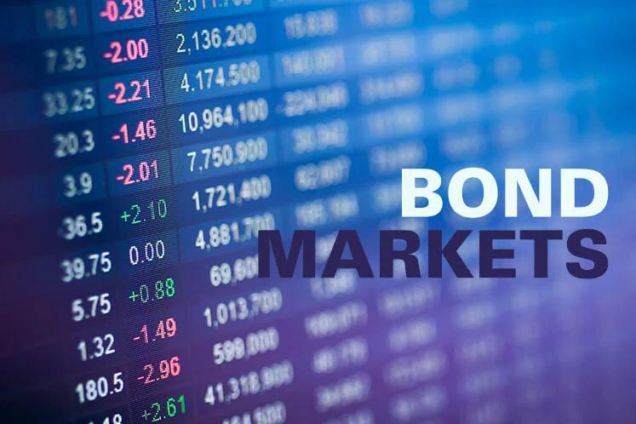Offshore investors revive bond market, as yields continue to rise
The secondary bond market witnessed a significant boost last week as offshore investors returned in increasing numbers, lifting turnover by 13.14 percent to GH¢1.12billion compared with GH¢991million the previous week.
The surge, largely driven by foreign interest in local currency-denominated bonds, signals growing confidence in the debt market despite persistent macroeconomic challenges.
According to market data, general category bonds dominated trading volumes – accounting for 82 percent of the total. Short-term bonds led the activity, contributing 49.44 percent of market turnover with their yield to maturity (YtM) easing slightly from 24 percent to 23 percent. In contrast, yields for middle- and long-term maturities rose modestly to 25.25 percent and 25.38 percent, representing 15.31 percent and 35.25 percent of turnover respectively.
“We believe that the increase in trading activity reflects growing participation from offshore investors returning to the market,” Databank said in an investor note. “This renewed interest is expected to continue, further enhancing liquidity in the coming weeks.”
Last month, following the IMF/World Bank meetings, Finance Minister Dr. Mohammed Amin Adam reported that economic reform efforts and successful debt restructuring programmes have garnered widespread recognition from the international investment community.
“The sentiment toward Ghana has been overwhelmingly positive, particularly during our engagements with institutional investors and major corporations,” Dr. Adam said at the time.
“Our commitment to fiscal discipline and successful implementation of our IMF programme has restored confidence in Ghana’s economic trajectory.”
Databank expects this trend to continue, further enhancing liquidity in the coming weeks. “As trading activities continue to rise in the near-term, we expect an improvement in bond prices and increased investor interest,” it stated.
Rising yields in primary auctions
While the secondary market benefitted from improved liquidity, the primary market struggled to meet its financing targets. Last week’s Treasury auction fell short of the GH¢6.89billion target, raising only GH¢6.41billion – a shortfall of approximately GH¢483million. This was insufficient to fully cover maturities of GH¢6.46billion, resulting in a target coverage ratio of 0.93x and a maturity coverage ratio of 0.99x.
Yields across all tenors increased as investors adjusted their bids upward to match market conditions. The 91-day Treasury bill yield rose by 22 basis points to 27.19 percent while the 182-day and 364-day bills saw increases of 20 basis points and 61 basis points, settling at 27.99 percent and 29.82 percent respectively.
“In line with our expectations, yields continue to rise as investors adjust their bids closer to the average lending rate of 27 percent,” market observers said.
Investor sentiment, inflation and policy rate
Investor sentiment remains shaped by expectations around the Monetary Policy Rate (MPR). The Bank of Ghana (BoG) Monetary Policy Committee (MPC) is widely expected to maintain its benchmark rate at 27 percent during the next review. This stance is underpinned by a recent uptick in inflation, which has discouraged hopes for a rate cut in the near-term.
“We believe that investors anticipate the Bank of Ghana Monetary Policy Committee will keep the benchmark rate at 27 percent due to the recent increase in the inflation rate,” Databank said.
This has led investors to apply a higher risk premium on bids in anticipation of a stable MPR. As a result, yields are expected to remain elevated in the near-term, providing some incentive for continued participation in government securities.
Treasury tests market confidence
The upcoming Treasury bill auction – scheduled for Friday, November 29, 2024 – will provide a critical test of market sentiment. Government seeks to raise GH¢6.10billion through the issuance of 91-day, 182-day and 364-day bills to cover maturing bills worth GH¢4.16billion.
This offering comes at a time when yields are already high, reflecting the increased risk premium demanded by investors. The auction’s success will depend on whether government can attract sufficient bids at competitive rates to meet its obligations and sustain investor confidence.



